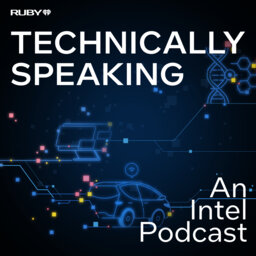Season 1 Episode 1: Ethics in AI
As the adage states, “with great power comes great responsibility” and as Artificial intelligence emerges as one of the fastest growing tools across multiple sectors of industry, there is a responsibility of leaders in these fields to determine a code of ethics in how AI will be implemented. One of these experts, Ria Cheruvu, joins in the first episode of Technically Speaking: An Intel Podcast to unpack all of the ethical questions surrounding how we engage with AI and ultimately what the future may hold for AI in classrooms, social life, and the workplace.
Learn more about how Intel is leading the charge in the AI Revolution at Intel.com/AIperformance
 Technically Speaking: An Intel Podcast
Technically Speaking: An Intel Podcast


